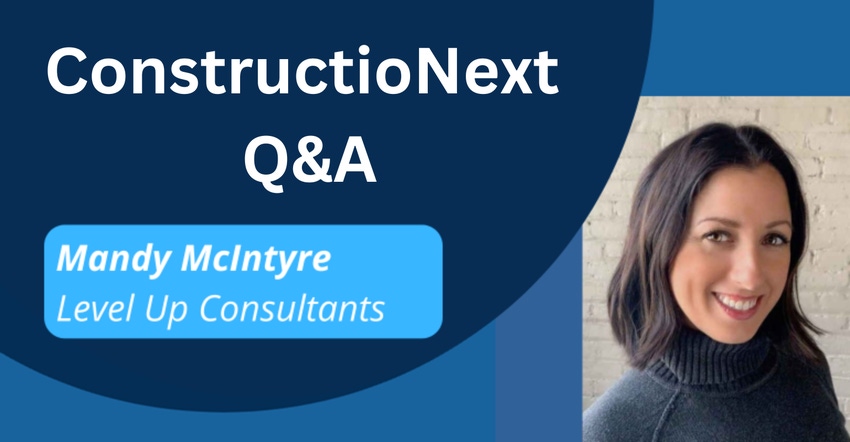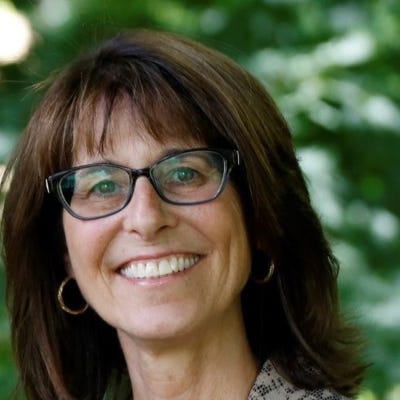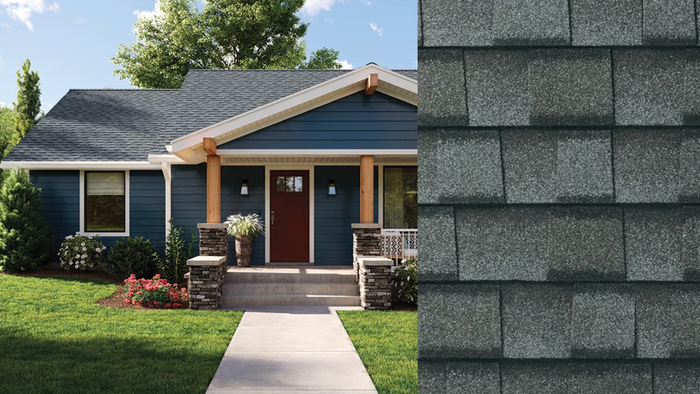How to Tackle Construction’s Unspoken Safety Issue
Construction industry veteran and mental health first-aid instructor Mandy McIntyre, of Level Up Consultants, shares insights on combating mental health challenges in the construction industry.

Mandy McIntyre has been around the construction industry for much of her life. She worked on staff for a roofing company for a decade before founding Level Up Consultants in Cleveland, Ohio. The core of her consulting business focuses on leadership and company culture to help recruit, engage and retain employees in the roofing and other construction industries.
After a foreman at the roofing company she worked for died by drug overdose, McIntyre turned her focus to mental health issues.
“We talk about safety so much in this industry,” she said. “We have entire roles in organizations dedicated to the safety of workers, but no one is talking enough about mental health, which is the number one safety hazard.” McIntyre pointed out that the construction industry has highest rates of suicide.
McIntyre trained to be a mental health first-aid instructor through the National Council for Mental Wellbeing. She then augmented the program to fit the construction industry and now provides training for private companies and organizations. She also is on the planning committee for Construction Suicide Prevention Week, held each September to help raise awareness about the unique challenges workers face in construction that lead to suicide and what those in the industry can do to prevent it.
This interview was held during May, which is Mental Health Awareness Month annually, and has been edited for clarity.
ConstructioNext: What is the first step you recommend to construction company owners looking to offer support and guidance on the topic of mental health?
Mandy McIntyre: First, look at your existing health care program resources. Make sure everybody on your team is aware that these resources exist and are encouraged to use them.
Business leaders often think about medical appointments as something that's taking away from production. But big picture? The better somebody feels, the more productive and engaged they're going to be in their work. If somebody doesn’t feel well—whether mentally or physically—they're more likely to injure themselves, make mistakes or just not care about their work. Allowing them an hour to talk with a therapist or see a doctor offers a huge return on investment.
CN: In your experience, are there many construction companies that don’t offer health insurance?
MM: I do know there are some that don't offer it because of the cost. But roofing and construction is stressful. It's dangerous and often requires long, grueling hours. It takes a toll on the body. We're setting up employees to fail by putting them in stressful situations knowing we're in the industry with the highest suicide and overdose deaths, and then not offering them mental health resources and health care. I just can't see the logic in not offering health insurance.
CN: What do you consider the biggest roadblock to addressing mental health concerns in the construction and trade industries?
MM: Stigma and fear—from two sides.
There’s the stigma and fear for people in field craft positions to admit they’re struggling. And part of that is it's a male-dominated industry, and there can be a sense of being seen as weak or shameful. It’s a tough industry. You have to be physically tough but also mentally tough.
On the other side, we have industry leaders who feel the same pressures and stigmas who are too afraid to address drug and alcohol use and other mental health issues. They don’t want to have those awkward conversations, or they feel that those are personal issues, and they don’t want to invade an employee’s privacy.
CN: About 30% of construction employees are immigrants (in California it’s closer to 40%). How much of a role does culture play when it comes to discussing mental health issues?
MM: In some cases, Hispanic culture can present unique challenges when it comes to discussing mental health issues. But it's important to note that experiences can vary greatly among individuals within any cultural group, and generalizations may not apply to everyone.
Mental health issues are often stigmatized in many cultures, including Hispanic communities. This stigma can stem from cultural beliefs such as self-reliance, strength and honor.
In addition, there may be language barriers to discussing mental health. If you are discussing health care benefits, make sure that the information is available in different languages so that people can access the care they need.
CN: How have you found that diversity, equity and inclusion and mental health awareness intersect, particularly in roofing?
MM: This correlates to the immigrant workforce and any demographic that isn't part of the majority. When you're advocating for mental health, you have to look at the individual and recognize that there may be other barriers that make it more difficult for them to receive the care they need.
It's important for organizations to offer employees a sense of psychological safety. It doesn't have to be some major mental health concern. It can be as simple as asking, “Are employees able to express an opinion, whatever it may be, and have it at least just heard?”
For example, let’s say you have a woman on your team, and she has received some negative comments or had interactions that have made her uncomfortable. Is your company culture psychologically safe enough so she feels that she can voice her concerns to leadership and not have them dismissed? Or will she be worried that she’ll face retribution?
This is where DEI and mental health really intersect because you must have a culture that is inclusive and appeals to a wide demographic. Ultimately that's going to attract better and more consistent talent to your company.
CN: What needs to change in the industry for the rate of suicides among construction workers to go down in coming years?
MM: First, we have to address that there is a problem, and people need to be made aware of the alarming statistics. Then we need to start talking about it more. One of the best ways to talk about it in the construction and roofing industry is via health toolbox talks that address mental health. Everyone is together, and mental health issues are a legitimate safety concern. Wrapping the discussion into a toolbox talk makes it feel less high stakes or awkward.
You also can get training on mental health from an accredited program through the National Council for Mental Wellbeing. It's a full-day training where you learn how to identify, understand and respond to mental health challenges or crises. You get a three-year certification. I’ve taken the training and adapted it to include sections pertaining specifically to the construction industry. This is an industrywide crisis that I am literally begging people to talk about more because it's what's killing our workforce.
I’m also working with the National Roofing Contractors Association to come up with a mental health awareness educational track.
CN: What resources do you recommend for those who may have concerns about their family, friends, coworkers or others in the construction industry who may be experiencing mental health struggles?
MM: The biggest one is 988, a 24-hour crisis control hotline. You can call or text that number for yourself or someone else. Responses are in English and Spanish. Trained counselors will direct you to local resources.
Another resource is Mental Health America. They have self-assessment mental health prescreenings as well as resources to guide you on where to go for help. The Construction Suicide Prevention Week website also provides resources and is working with OSHA because this is the industry’s biggest safety concern that is not being addressed.
And of course, you should always check your own health care plan. If you feel like you are getting too anxious, too sad or are unable to take care of yourself, get the help that you need, and don't be your own barrier.
About the Author(s)
You May Also Like




